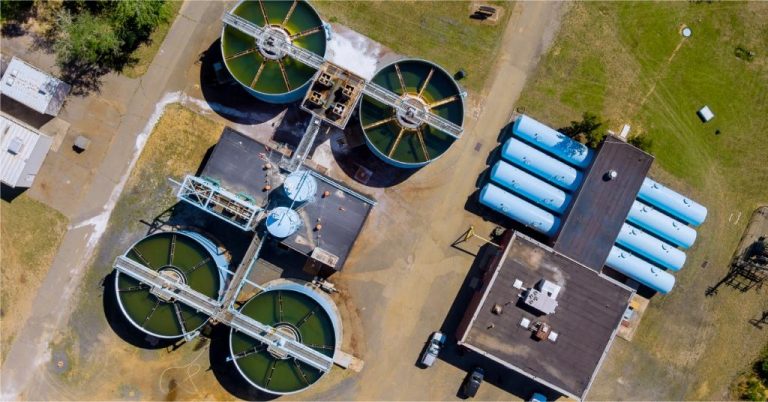Nepal’s rapid industrial growth has brought economic benefits but also environmental challenges, particularly in managing wastewater. Industries across the country are significant contributors to water pollution, often releasing untreated or inadequately treated wastewater into natural water bodies. This not only affects the environment but also public health. Effective wastewater management is crucial to mitigating these issues and fostering sustainable industrial practices.
In this blog, we’ll explore what is wastewater management, its importance, and strategies that industries in Nepal can adopt to ensure cleaner and more sustainable operations.
What is Waste Water Management?
Wastewater management refers to the processes and systems used to treat, recycle, and dispose of water that has been contaminated through industrial, domestic, or agricultural activities. The goal is to remove harmful pollutants and make the water safe for reuse or release into the environment.
In industrial settings, a wastewater management plant is typically used to treat water before it is discharged. This ensures compliance with environmental regulations and reduces the harmful impact of industrial processes on ecosystems. For a country like Nepal, where natural water resources are vital for both livelihoods and biodiversity, implementing robust wastewater management strategies is essential.
The Importance of Waste Water Management in Nepal
Nepal is home to numerous rivers, lakes, and wetlands that play a critical role in its ecosystem and economy. However, these water bodies are increasingly at risk due to industrial pollution. Effective wastewater management offers several benefits:
- Environmental Protection
Untreated industrial wastewater often contains hazardous chemicals, heavy metals, and organic pollutants that can harm aquatic life and degrade water quality. Proper treatment reduces this impact, preserving Nepal’s natural resources. - Public Health
Polluted water is a major source of waterborne diseases, such as cholera and typhoid. Effective wastewater management ensures cleaner water, reducing health risks for communities relying on rivers and lakes for drinking, bathing, and irrigation. - Regulatory Compliance
Industries in Nepal must adhere to government regulations on effluent discharge. Investing in wastewater management systems helps businesses avoid fines and maintain their reputation. - Resource Recovery
Modern wastewater management plants can recover valuable resources like energy, nutrients, and clean water. This supports circular economy principles and reduces operational costs for industries.
Key Strategies for Effective Waste Water Management
- Installing Efficient Waste Water Management Plants
Industries must invest in wastewater management plants that are designed to meet their specific requirements. These plants use advanced technologies such as biological treatment, chemical treatment, and membrane filtration to remove contaminants effectively. By tailoring the system to the type of wastewater produced, industries can achieve maximum efficiency. - Adopting Zero Liquid Discharge (ZLD) Systems
Zero Liquid Discharge Systems are an advanced wastewater management solution that ensures no liquid waste is discharged into the environment. Instead, the water is treated, recycled, and reused within industrial processes. ZLD systems are particularly beneficial for water-intensive industries like textiles and manufacturing, as they help conserve water and minimize environmental impact. - Regular Monitoring and Maintenance
A wastewater management plant is only as effective as its operation and maintenance. Regular monitoring ensures that the system is functioning optimally and that treated water meets regulatory standards. Investing in periodic maintenance also prevents costly breakdowns and inefficiencies. - Recycling and Reusing Treated Water
Industries can reduce their freshwater consumption by recycling treated wastewater for non-potable uses, such as cooling systems, irrigation, and cleaning. This not only conserves water but also lowers operational costs. - Implementing Advanced Treatment Technologies
Modern wastewater treatment technologies, such as membrane bioreactors (MBRs), reverse osmosis (RO), and electrocoagulation, offer higher efficiency and adaptability. These systems are particularly effective for industries dealing with complex wastewater compositions, such as pharmaceuticals and chemicals. - Employee Training and Awareness
Employees play a crucial role in the success of any wastewater management strategy. Industries must provide training on best practices for handling and managing wastewater. Creating awareness about the environmental impact of untreated wastewater can also encourage more responsible behavior. - Collaborating with Experts
Designing and implementing a wastewater management system requires technical expertise. Collaborating with experienced professionals ensures that industries adopt the most effective solutions tailored to their needs.
The Role of Waste Water Management Plants
A wastewater management plant is the backbone of any industrial water treatment strategy. These plants use a combination of physical, chemical, and biological processes to treat wastewater. For industries in Nepal, adopting such systems is not just an environmental responsibility but also a legal necessity.
Key components of an effective wastewater management plant include:
- Pre-Treatment: Removal of large solids and debris.
- Primary Treatment: Sedimentation to remove suspended solids.
- Secondary Treatment: Biological processes to break down organic pollutants.
- Tertiary Treatment: Advanced filtration and disinfection to meet discharge standards.
How Ion Exchange Improves Wastewater Treatment?
Ion Exchange, a leader in water and wastewater treatment solutions, plays a pivotal role in enhancing the wastewater treatment process in Nepal. By offering state-of-the-art technology and customized solutions, Ion Exchange helps industries, municipalities, and communities implement efficient wastewater treatment plant processes that meet regulatory standards and promote sustainability.
Our state-of-the-art wastewater treatment plants offer pioneering solutions that focus on wastewater recycling and source reduction, alongside waste management through product recovery and waste minimization. Utilizing innovative, energy-efficient, and cost-effective technologies such as membranes, advanced oxidation, and evaporation, these integrated systems help conserve water by recycling wastewater and recovering valuable by-products for reuse. This approach not only supports zero liquid discharge objectives but also delivers a strong return on investment for our customers while protecting the environment. After conducting bench-scale and pilot plant studies and detailed site surveys, we select the most appropriate technologies for industries such as power, fertilizer, electronics, textiles, chemicals, food & beverage, pulp & paper, pharmaceuticals, and automotive sectors. Our product line includes:
Conclusion
In conclusion, the wastewater treatment process in Nepal is continuously enhanced by innovative technologies like ion exchange. By improving the removal of contaminants, enhancing water quality, and supporting water reuse initiatives, ion exchange systems play a crucial role in ensuring sustainable water management. As Nepal continues to prioritize environmental sustainability and water security, understanding and implementing advanced treatment solutions like ion exchange will be essential in achieving long-term goals for clean, safe water.


